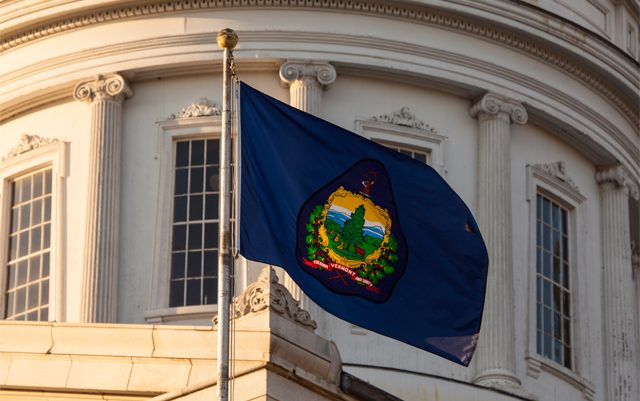After years of failed attempts, Vermont became the first state to legalize cannabis through legislature this week. On Monday, Governor Phil Scott signed H.511 into law, making possession of up to an ounce of marijuana, as well as home cultivation of up to 4 plants (with 2 mature at a time) legal for adults 21 or older. It has been a long road for the state, which has made many efforts before this, including the recently vetoed S.22 last spring, but legalization is finally a reality in a state where voter initiatives are not an option.
“As I said when I vetoed S. 22 in May, I personally believe that what adults do behind closed doors and on private property is their choice, so long as it does not negatively impact the health and safety of others, especially children,” Scott said in a statement following the bill signing.
For now, it will only be legal to possess and cultivate small amounts of cannabis – and attempts to pass legislation that would allow commercialization of the plant are likely to be vetoed if they made it that far. However, there is already a commission in place, which has been formed to research current legal cannabis markets and guide legislators through creating a safe and regulated market – when the time is right.
This is intended to ensure that Vermont lawmakers are preemptive on issues that have been problematic in states like Colorado, Washington and Oregon, where legal commercial sales of cannabis have been in place for a few years already.
“The tone of the commission all along has been, ‘Let’s figure out how to do this, regardless of whether we think it should happen or not,’” said Matt Simon, the New England political director for the Marijuana Policy Project. “They’re gonna come up with specific policy recommendations. Now whether the legislature decides to take those recommendations or not is a whole different story.”
Vermont passing this law was a big win for cannabis activists – even though it was not a law passed by voter initiative. It means that after years of effort by scientists, researchers, activists, advocates, patients and responsible recreational consumers, even lawmakers have realized the problems cannabis prohibition has really created. Hopefully other states’ lawmakers will feel empowered by this move, and feel more comfortable making similar decisions of their own.
A similar bill has already been approved by the House of Representatives in New Hampshire, and is soon expected to be heard by the Senate, where if passed, the state would have the chance to follow Vermont’s lead and legalize cannabis. New Jersey’s new governor has added legalization to the office’s website as a ‘Key Initiative,’ and even New York’s governor has commissioned a study to consider possibly legalizing the herb.
This could be the first of many states where lawmakers decide to move towards more common-sense marijuana policy, without the need for that extra push from voters.






